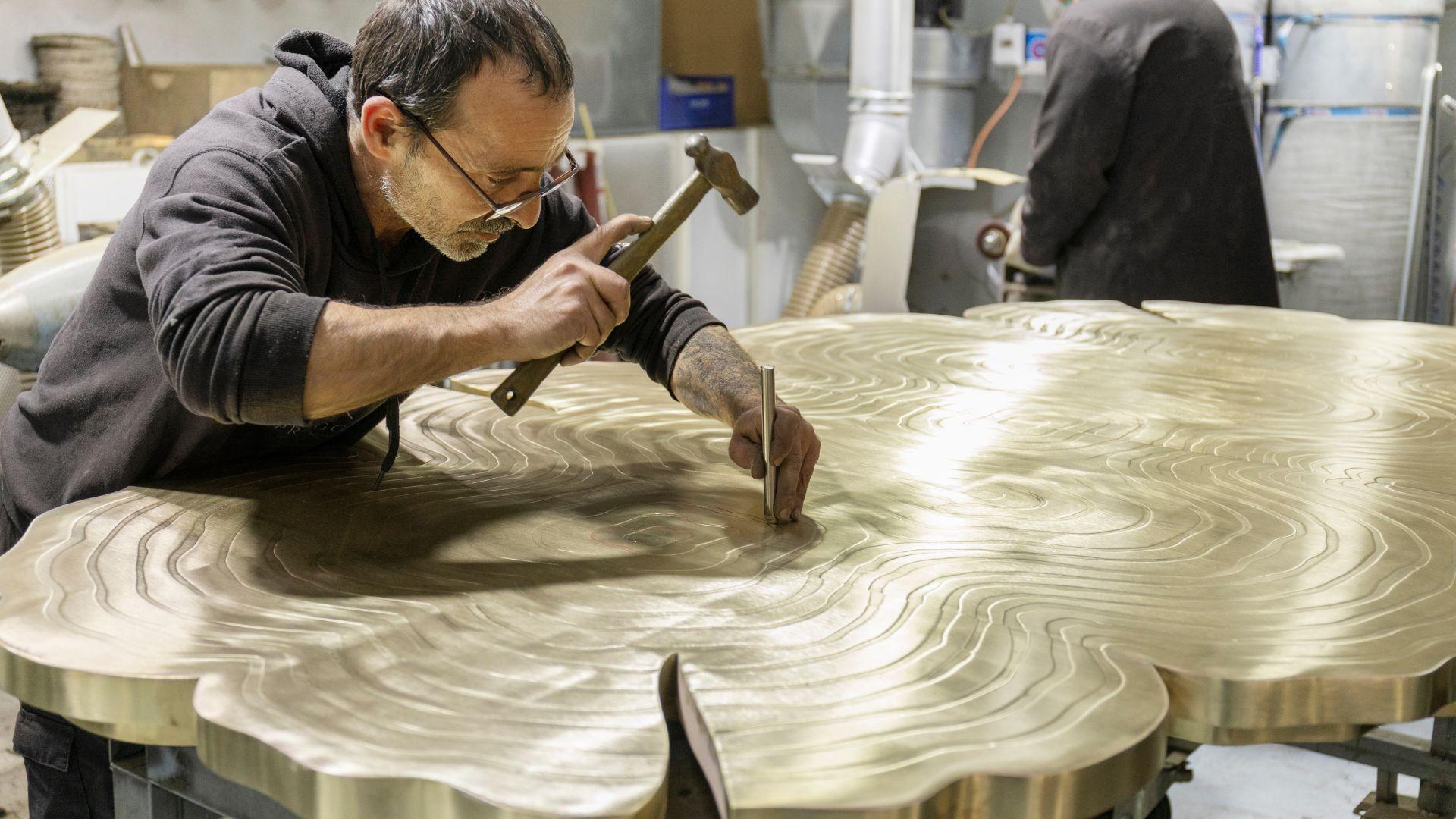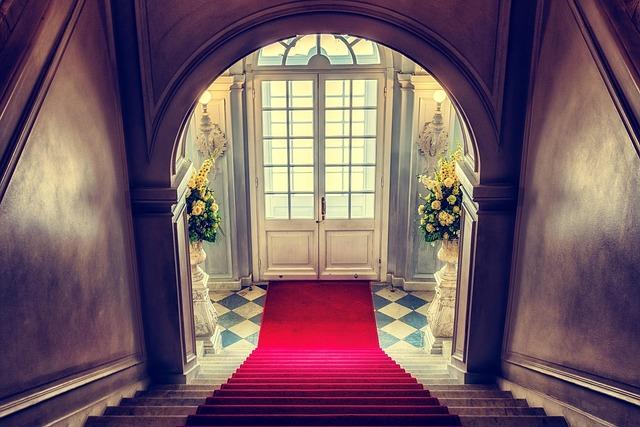In a world where wardrobe choices reflect not just personal taste but also social status, the debate between luxury and fast fashion has transformed from a mere discussion into a cultural phenomenon.Each season,consumers are faced with the tantalizing allure of high-end brands promising quality and exclusivity,juxtaposed against the rapid-fire trends and affordability that fast fashion offers. This article delves into the intricate landscape of fashion economics — weighs the tangible benefits of investing in luxury goods against the fleeting satisfaction of cheaper alternatives. Is the high price tag associated with luxury merely a hallmark of branding, or does it symbolize something deeper in our pursuit of identity and style? Join us as we unravel the complexities of this vibrant marketplace, exploring weather the investment in luxury truly pays off or if it’s simply a game of perception dressed in silk and leather.
The Allure of Craftsmanship in Luxury Fashion
The essence of luxury fashion lies not only in bold designs and prestigious branding but also in the artistry and meticulous planning that accompany each piece. craftsmanship stands at the forefront of luxury, transforming the mundane into the exceptional. Talented artisans pour hours of dedication into hand-stitching, selecting the finest materials, and perfecting every detail. This labor-intensive process results in apparel and accessories that do not merely tell a story but embody a heritage, an ethos that fast fashion brands often overlook in their quest for rapid production.
The price associated with luxury items reflects the longevity of craftsmanship, ensuring that each garment or accessory can withstand the test of time. Consider the following aspects that elevate these pieces beyond mere clothing:
- Quality Materials: Only the finest fabrics and leathers are utilized, offering durability and comfort.
- Timeless Design: Unlike fleeting trends, luxury fashion often features classic styles that remain relevant.
- Exclusivity: Limited editions and small production runs create a sense of rarity and desirability.
To illustrate the difference further, a simple comparison can be made between luxury and fast fashion:
| Feature | Luxury Fashion | Fast fashion |
|---|---|---|
| Craftsmanship | Handcrafted with attention to detail | Mass produced with little regard for detail |
| Material Quality | High-end, sustainable materials | Low-cost, lower quality fabrics |
| Longevity | Designed to last a lifetime | Usually worn a few times before disposal |
Understanding the Environmental Impact of Fast fashion
The world of fashion is not just about style and trends; it is inherently linked to our planet’s health. Fast fashion, characterized by its rapid production and low costs, creates garments that quickly become disposable, leading to an immense environmental burden. The fashion industry is the second-largest polluter globally, following oil. From the extensive use of water and hazardous chemicals in production to the sheer volume of waste generated, the damage is glaring. Each year, around 92 million tons of textile waste finds its way to landfills, representing a significant loss of resources and a major contributor to soil and water pollution.
The implications of fast fashion extend beyond mere waste. The carbon footprint associated with these cheaply made garments is significant. The production process requires immense energy, and the transportation of these products further exacerbates the problem.The following are key contributors to the environmental issues posed by fast fashion:
- Water Usage: The industry consumes more than 1.5 trillion liters of water annually.
- Pollution: Toxic dyes and chemicals pollute waterways, affecting local communities.
- Carbon Emissions: fashion contributes approximately 10% of global carbon emissions.
As consumers grapple with their purchasing decisions, understanding these impacts is crucial. A shift towards sustainable practices and mindful consumption can foster a more responsible industry,ensuring that our love for fashion does not come at the expense of our environment.
Decoding brand Value: is It Prestige or Price Tag?
When it comes to understanding a brand’s value, consumers often find themselves navigating the complex interplay between prestige and price tag. Luxury brands have built their reputations around exclusivity, craftsmanship, and heritage, often justifying their hefty price tags with stories that evoke aspiration and desire. On the othre hand, fast fashion brands deliver immediate gratification at lower prices, appealing to trend-driven consumers. However, this raises a pertinent question: does a higher price equate to better quality or simply a more polished marketing narrative?
To unravel this enigma, we can look at key characteristics that differentiate luxury brands from their fast fashion counterparts. Below are some critical considerations:
- Curation vs.Volume: Luxury brands typically offer a curated range of products, while fast fashion thrives on high turnover and volume.
- Sustainability: Many luxury houses are increasingly focusing on sustainable practices, contrasting with fast fashion’s often detrimental environmental impact.
- Longevity: Investing in luxury often translates to timeless pieces that can withstand trends, whereas fast fashion tends to favor fleeting styles.
- Brand Narrative: Luxury brands craft intricate stories around their products, while fast fashion often relies on immediacy and broad appeal.
To encapsulate the essence of brand value, we can visually compare these elements:
| Factor | Luxury Brands | Fast Fashion Brands |
|---|---|---|
| Price Point | High | Low |
| Quality | Exceptional | Variable |
| Exclusivity | Highly exclusive | Mass Production |
| Sustainability | Increasing focus | Often Neglected |
This analysis highlights how the actual value of a brand goes beyond the mere price tag, suggesting that discerning consumers weigh their options with more depth than just the cost involved. Ultimately, while the allure of luxury carries undeniable weight, the rapid evolution of fast fashion keeps it relevant, forcing us to reconsider the true worth of what we wear.
Smart Consumer Choices: Finding Value Beyond the Label
In today’s consumer landscape, the allure of luxury brands frequently enough draws attention with their polished marketing campaigns and high price tags. though, behind the veneer of exclusivity, you may find that the true value of such products lies deeper than just the label. When evaluating whether a luxury item is genuinely worth the investment, consumers should consider several factors:
- quality of Materials: Luxury items often utilize superior materials that may last longer than their fast fashion counterparts.
- Craftsmanship: The meticulous attention to detail in luxury goods can lead to a more durable and aesthetically pleasing product.
- Brand ethos: Many high-end brands prioritize ethical production practices, sustainability, and fair labor, which is an increasingly important consideration for conscientious consumers.
Conversely,fast fashion brands thrive on the constant influx of trendy styles at accessible prices,appealing particularly to those who prioritize affordability and short-term trends. To illustrate the differences, consider the following simple comparison of consumer perceptions:
| Factor | Luxury Brands | Fast Fashion |
|---|---|---|
| Price Point | High | Low |
| longevity | Long-lasting | Trendy but short-lived |
| Production Ethics | Often ethical | Variable |
| Originality | Unique designs | Mass-produced |
Ultimately, the decision between luxury and fast fashion hinges on individual values and priorities. By making informed choices, consumers can navigate the marketplace and find true value that resonates with their lifestyle and ethical beliefs.
The Way Forward
as we navigate the intricate labyrinth of fashion,the dichotomy between luxury and fast fashion invites us to reflect not only on our personal style but also on the values we hold dear. The allure of haute couture gleams with promises of craftsmanship and exclusivity, while the rapid-fire appeal of fast fashion seduces with its affordability and trend-driven designs.Ultimately, the question remains – is the price worth it, or is it merely a facade draped in branding?
By understanding the nuances that separate these two realms, we empower ourselves as consumers. Our choices can transcend the superficial, guiding us towards sustainability, ethical production, and a more conscientious wardrobe. Whether you lean towards the sophistication of luxury or the accessibility of fast fashion, remember that every purchase reflects not just a style preference, but a deeper narrative about our values in an ever-evolving world. In this ongoing conversation about worth,let us choose to elevate our standards and embrace the story behind what we wear.
